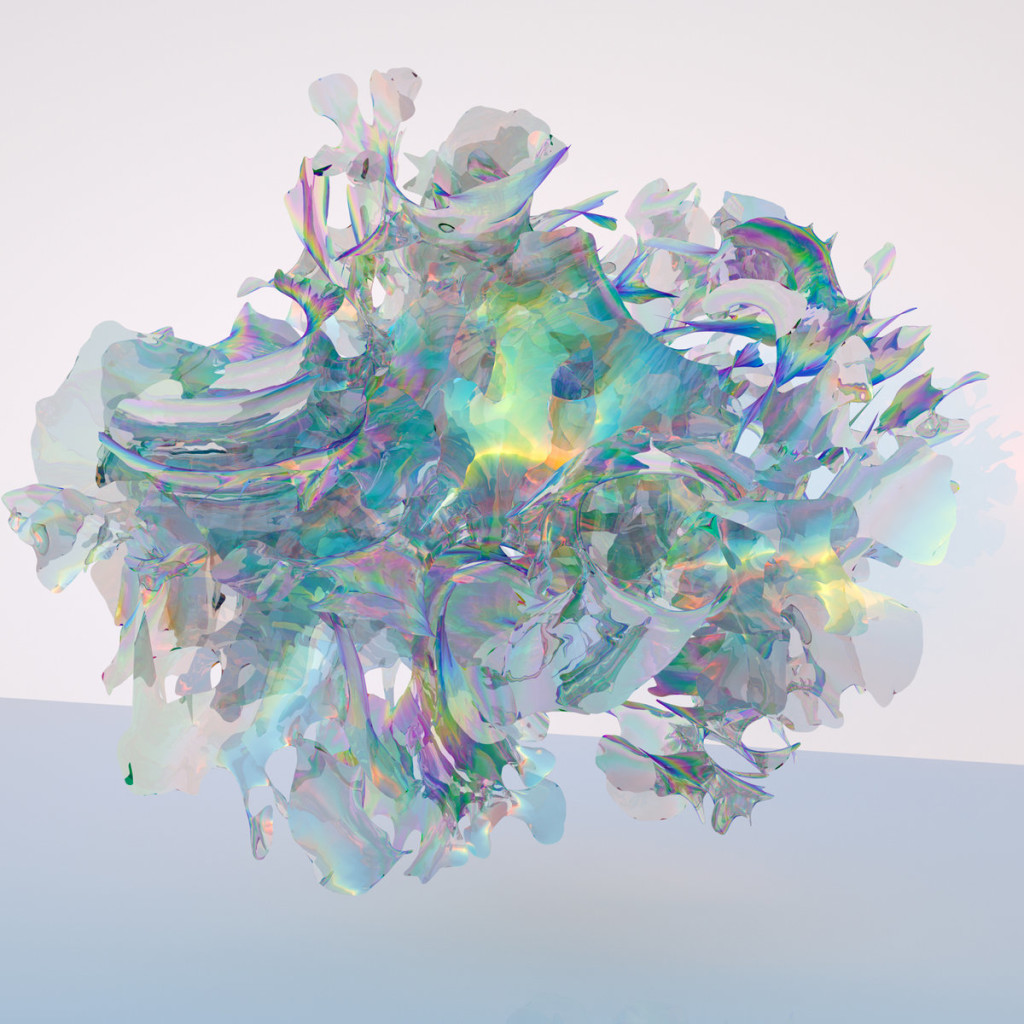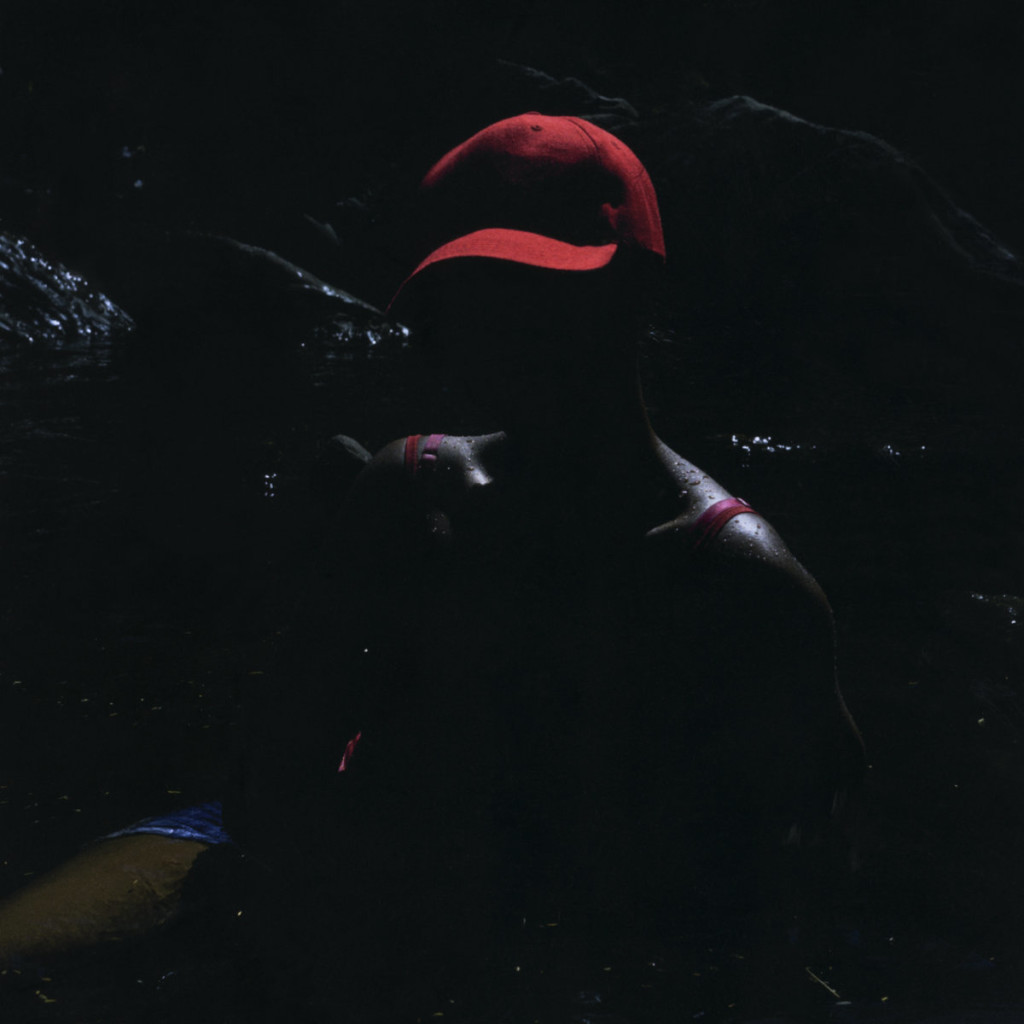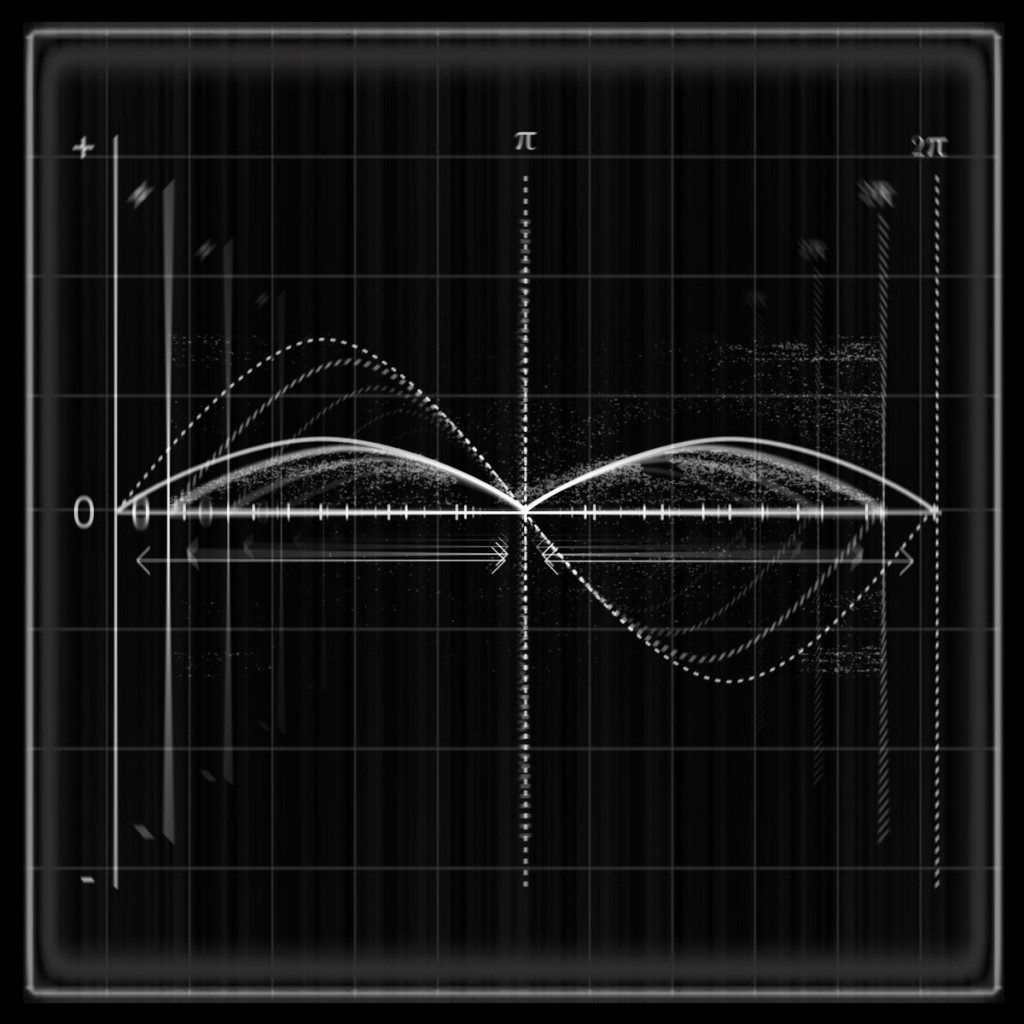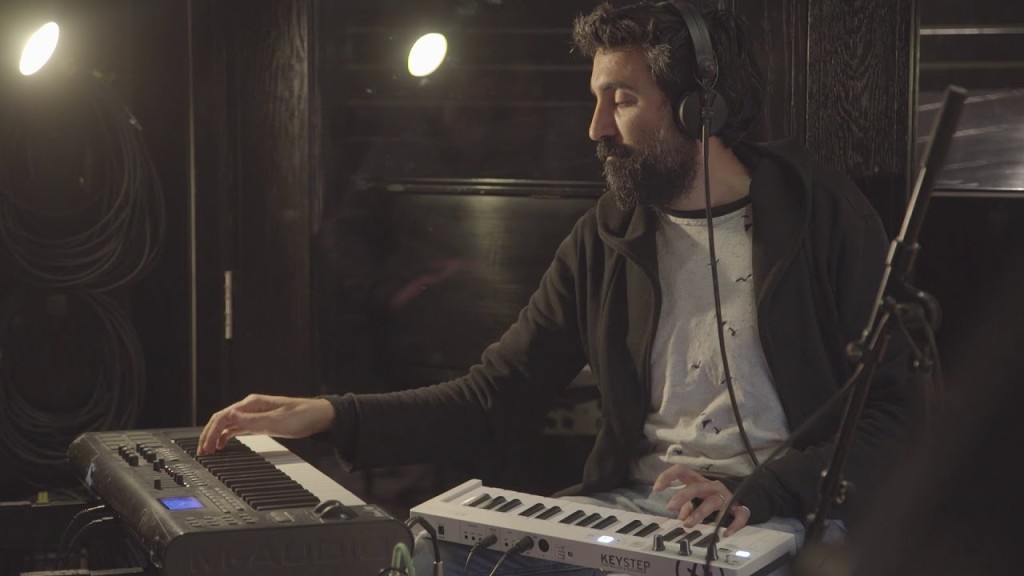Channeling pain and ecstasy, from dance and avant-garde and genres newly brewed, Abadir to Cinthie to Lamin Fofana to patten to Pole, summer brings more spectacular ways to fill your hard drives and souls with music.
Back again to resident music hoarder David Abravanel, who welcomes “hate/praise/suggestions” at @dabravanel on Twitter. And yes – it’s Bandcamp Friday again, so plenty of these releases are available on Bandcamp where today the platform takes 0% of revenue.
There’s loads to focus on this time around, so I’m hoping to shine some light on a few less-trumpeted releases – though I can’t help but include a few more popular favorites. Artists are in alphabetical order, because V O L U M E!


Abadir – Liminal (Hush Hush)
Rami Abadir is no stranger to my writing and lists here, having previously appeared multiple times as part of dynamic duo 0N4B. Liminal continues a tradition of focus on details and minutiae that lend Abadir’s work such a consistent sense of majesty, scaling back beats in favor of droning ambient evolutions. Every time I listen I pick up on a new speck of reverberated dust, or the doppler movement of a particular chime.
Abadir also peels back the curtain frequently on Instagram, where you can often see his meticulous arrangements in Ableton Live in action. Bonus: if you speak Arabic (or have Google Translate handy), Abadir writes frequently about new electronic and experimental music for Ma3azef.
Alis – Skylab (self-released)
Genre-bender Sabina Plamenova covers jungle, techno, acid, R&B, and layered soundscapes (and that’s just on this latest EP). Anchoring Skylab, as with last year’s gorgeous Papercuts, is Plamenova’s versatile voice.
The three cuts on Skylab provide comfy sound beds while never staying put. “Phase 2” morphs from skittery breaks to a stretched-out sludge, while “Never Sleep” emerges as a slow acid-y burner from grainy bit-destroyed synths. Closer “Red and Blue” is the brightest gem here, a thick soup of ambient techno surrounded by Sabina’s vocal layers. There’s loads to unwrap, and a warm space in which to get lost.
Andrew Pekler – Cover Versions (Fantôme Verlag / Senufo Editions)
Who says the avant-garde doesn’t know how to have fun? Long an admirer of certain record art aesthetics (think: Exotica compilations, sunsets, sailing ships), Andrew Pekler assembled the dreamy collages in sound and visual on Cover Versions for a gallery exhibition in 2012. The exhibition included a record store (of sorts), in which 300 copies of Cover Versions were sold, each with a unique cover assembled from the covers of bargain bin albums according to a number of visual criteria.
Far from being a simple trip into nostalgia, Cover Versions builds upon the woozy, cut-up sound that gave Pekler his status as a proto-chillwave influencer. Listening to a gorgeous twinkling piece like “Still Life”, I get a better sense of what a Madlib/Jan Jelinek collaboration might sound like. While the vinyl editions are long since sold out, the 2020 digital reissue includes 10 extra bonus tracks not on the original vinyl, plus a PDF including 100 of the album covers and photos of the original exhibition.
Arovane – Gestalt (Puremagnetik)
Over the past couple of years, Puremagnetik has quietly released some positively lush ambient albums, mostly at incredible bargain prices ($1 or more). What’s more, since Puremagnetik founder Micah Frank is also a talented plugin designer, most albums come with a special plugin created in collaboration between Frank and the artist.
With landmark albums like the dense machine Atol Scrap and the folktronica masterpiece Tides (seriously, if you like Boards of Canada or Four Tet and you don’t have Tides, you’re missing out), Arovane aka Uwe Zahn delivers a wonderful ambient bath of sound with Gestalt. It’s a rare treat that music sounds minimal until you really crank it up, but put on “endolp” and slowly raise the volume until you lose track of where you are. You’ll get it when you hear it (did I mention, $1?).
Atom™ – <3 (raster media)
Our favorite prolific glitch goofball is back at it again. Only this time, the vocals are from a custom AI program, as are the lyrics. Or are they? This is Uwe Schmidt, after all. Cha-cha band leader Señor Coconut. Christian microhouse artist Geeez ‘n’ Gosh. Honestly, I just enjoy the ride.
Practically, <3 is Schmidt’s most accessible work since his last “pop” album, 2013’s HD. Where HD saw him obsessed with the machinations of the pop world – from mp3 dismantling MTV to writing love songs to a LinnDrum – <3 is conceptually tied to x1n, “an entity for generating human voice and natural language content.” I have no idea whether such a program exists, but the “hard code pop” of <3 presents and engaging case for the danceable nature of a digital popstar singularity.
Beans – Team BreakUP (Hello L.A.)
Beans aka Mr. Ball Beam has never been afraid of a challenge, or to challenge listeners. Part of the legendary hip-hop group Antipop Consortium, Beans has cut a solo path full of left turns, overwhelming instrumentals, and densely poetic lyrics.
Team BreakUP doesn’t hold hands. Opener “Stevie + Nicks” is largely a free jazz saxophone solo (courtesy of Dan Wenninger) with an underpinning of galloping bass beats. “The Stoned Clairvoyant of Hip-Hop” might be the most self-aware title in Beans’ history. It’s all grounded by lyrics that still couldn’t have come from anyone else, whether telling the gonzo story of a bee trapped in a submarine, or the intense pain in “$4”, concerning Gregory Hill, a black man killed by police over a noise complaint.
Cinthie – Skylines – City Lights (Aus Music)
One time in 2012, I received a can of tomato paste from Cinthie, with the label boasting the date and lineup for a forthcoming Beste Modus party at Watergate. Just to say – Cinthie’s creative, and she’s a hustler. With two labels ongoing (Beste Modus & 803 Crystal Grooves), multiple club nights, and touring internationally as a DJ, it’s impressive that Cinthie has also found time over the years to let out some excellent originals on wax. None of which prepared me for Skylines – City Lights.
It’s not easy to make a dance music album – sure, you can follow a template (the two-minute ambient intro that segues into the first proper banger, 8-10 tracks, etc.), but assembling a dance LP that really tells a story as an album, while also providing dancefloor killers, isn’t easy. With Skylines – City Lights, Cinthie joins the ranks of Floorplan, Virgo, and Dajae, in making an absolutely smashing house album.
Many of these tracks could be the euphoric centerpiece to a set – the piano house stomp of first single “Bassline” and the smooth soul samples of “Concentrate” are great candidates – while things go at turns deep, hyped, over-the-top and relaxed. It all works as one nice journey. “Calling” is raw, distorted and sweaty, with frequently collaborator Gill bringing vocals, while “Houze Muzik” harks back to the more cerebral Galaxy 2 Galaxy cuts and “Flashback” goes on a Mr. Fingers-esque journey into piano chords and cosmic synths. Rarely have I heard a full-length album from a DJ that sounds so purposefully-sequenced to maintain interest and dynamics; it’s clear that Cinthie’s expertise in providing DJ set experiences is at play here.
Plus, the album ends with “803 The Meme Queen”, just in case you thought Cinthie wasn’t going to acknowledge the people who got to know her via that Facebook group.

Deadbeat and Paul St. Hilaire – Four Quartets of Love and Modern Lash (Another Moon)
Look, do you like dub techno? Even a little bit? Then this is essential. It’s Deadbeat, it’s Paul St. Hilaire (aka Tikiman), it’s four ~15-minute tracks that go way deep. Bass bumps lay down underneath Tiki’s smooth singing on war, dreams, and life. Watch this space for more in-depth about this one, but…just go out and get it for now.
HPRIZM – Loops Are A Form Of Meditation (Prizmlabs)
Two members of Antipop Consortium in one piece! HPRIZM fka High Priest focuses on instrumentals for Loops Are A Form Of Meditation. Anyone who has ever let a sampler just run a loop for a few minutes (or hours) can attest to the accuracy of the album title. HPRIZM has taken to Instagram several times for live sessions since lockdowns began, and it’s been thrilling to watch pieces like these come together in real time on an MPC. With some genius flips and lush sound design, Loops is worth getting lost in.
Jason Priest – Is Missing (Hard Disk Dust)
Neo-Italo wizard Antoni Maiovvi certainly likes to inhabit worlds with his music – that’s part of why his soundtrack work is so special. With Jason Priest, Maiovvi has spent a few years chronicling the story of a mid-80s post-punk/dance pop star, now going through an uncertain early 90s as of Is Missing, the third Priest album.
The concept is fun, but you don’t need to buy into it to enjoy easily the strongest set of songs that Maiovvi has ever produced. It’s not just that Maiovvi honors the aggressive disco punk of his influencers, it’s that he often laps then. The Cure wishes they’d reached the heights of “March 25” on The Top, and I want to throw “Be Thankful, Billy” at anyone who laments that M83 hasn’t been around for a while. You could tell me that Depeche Mode wrote “Dead Again” for Black Celebration then somehow forgot one of their strongest tracks. Yet it’s all very much of one unified voice and story, and it’s definitely Maiovvi’s. Here’s hoping for a music video!

Lamin Fofana – Darkwater (Black Studies)
Lamin Fofana – Blues (Black Studies)
Lamin Fofana closes out an ambient trilogy on his own Black Studies imprint with the midnight resonances of Darkwater (named after the W.E.B. Du Bois book) and the dawn emergence of Blues (named after Amiri Baraka’s Blues People).
When I wrote last year about Black Metamorphosis, the first part of this trilogy, I drew on the role of music as both a salve and a reminder of our difficult and complex realities. Fofana bears his struggle with these tracks – as a Black man, as a Sierra Leonian immigrant in Berlin. It’s strange to think of drawing enjoyment and comfort from music borne of struggle, but then, as the Baraka excerpt in Blues reminds us, that’s the story of much of American popular music and its Black origins.
minimalviolence – Phase One (Tresor)
There is perhaps no more exciting act in the EBM resurgence of the past decade than Vancouver duo minimalviolence. Expanding on the InDreams corporation that adorned the artwork of their 2019 debut album, Phase One is the first in a new series of EPs for Tresor. “Ravebomb” is about as perfect a description as you’ll get for a track. Hoovers, stabs, and all that industrial gated-reverb goodness.

patten – GLOW (555-5555)
Last year, the mysterious patten returned with a new label, 555-5555, and a tour through rave history and future in Flex. GLOW is a very different mood, largely absent of percussion. Harps, music boxes, pianos, synths, and guitars fill in the gaps for an album that truly captures an isolating sound.
patten – “Rorschach”. Video by Zan Lyons.
Reminiscent at times of Dean Blunt’s confessional instrumentals (“Memory Palace”), Björk’s twinkling patterns (“Rorschach”), Lee Gamble’s machine atmospheres (“Screen Burn”), and µ-Ziq’s melancholy melodies (“Epoch”), GLOW finds patten connecting some intriguing instrumental dots.
Pole – 1 2 3 (Mute)
There’s little that I can say about these reissued dub techno masterpieces that hasn’t already been said. Suffice it to say the new mastering job is excellent – you can finally hear the bass on “Tanzen” at the perfect level!
Really though, get this. You know you need it.
The Soft Pink Truth – Shall We Go On Sinning So That Grace May Increase? (Thrill Jockey)
Over the years, The Soft Pink Truth has often been the cheeky outlet for Matmos member Drew Daniel, exploring the sillier side of house and childhood loves of hardcore punk and black metal. Shall We Go On Sinning So That Grace May Increase? is something very different, however, a work of beauty that seems to freeze time.
In the vein of Terre Thaemlitz, Daniel mines the roles of fantasy, comfort, and religious experience in music. Two side-length pieces mine the kind of spiritual/natural magic moods that hark to later Mercury Rev or In A Silent Way-era Miles Davis. Stay tuned for more on this one.

Ville Aalto – Avian Electronics (self-released)
If you’ve ever programmed a synthesizer, then you’ve experienced the joy of finding sounds that uncannily resemble nature, even as they come entirely from oscillators. Ville Aalto explores this in depth with the electronic birdsong that forms the core of the aptly-named Avian Electronics.
With a focus on alternately deep and snippy sine percussion and bass surrounding the birds (this Alva Noto or Ryoji Ikeda at a bird sanctuary), Avian Electronics is alternately playful and majestic, and an exciting find for 2020. The birds know.
Wolfgang Voigt – Freiland Klaviermusik 2 (Profan)
Wolfgang Voigt · Freiland Klaviermusik 2 (selection)
There are few artists around with as much of a signature feel to their music as Wolfgang Voigt. Whether it’s the dissolved symphonies of GAS, the clipped minimal of Studio 1, or the sharp acid of Mike Ink, it’s all definitely Voigt, of Kompakt-founding fame.
Freiland Klaviermusik 2’s quiet release picks up where the previously volume started a decade ago, built mainly from a basic kick drum and minimal loops that make generous use of the piano’s lower registers. Where the first Freiland Klaviermusik suffered under the weight of its unrelenting dissonance, the second volume is an exceptional improvement to the formula. This time around, there’s room for the Riley-esque layers of “Spiralo”, the locomotion that propels “Trichter”, and aural mystery of “Konstruktive Unvernunft”. Now, for the Steve Reich collaboration!

Yehezkel Raz – Original Motion Picture Soundtrack (Artlist Original)
For years, Yehezkel Raz has released works of hypnotic beauty, often on the minimal side (last year’s 9 Moons being a fittingly sparse tribute to different moons in our solar system). Original Motion Picture Soundtrack fleshes things out somewhat, and returns a focus to the earth and to nature. “The Wanderer” marries Angelo Badalementi’s ominous mystery with Bernard Fevre’s disco horn synths, which sounds like it shouldn’t work but man, does it. “Morning Sunbeams” and “Autumn Wind” take several emotional turns with their melodies, proving that music designed to sit well on film need not forego its own depth.